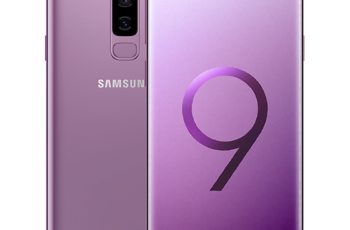Still not sure if you even need a business phone system, No problem.

Some business phone system questions and answers that will help you
Q: Do I need a phone system?
A: The simple answer to this question is yes. Because all businesses can benefit from some sort of business phone system. It is held that no matter the scope or type, every business should have the tools and solutions to present themselves professionally. While maximizing their ability to work efficiently and stay connected to customers and co-workers.
Read Also: Technological tools in Nigeria business
Q: Can’t my employees and I use our phone system for business purposes?
A: It is definitely possible, using a virtual phone system allows you to use your mobile device, while still presenting a professional image. Mobile phone plans are simply not set up to offer the same business features that specifically designed business phone systems offer.
Q: Will I be at a disadvantage if I continue using this type of system in the future?
A: The problem with landline systems isn’t their functionality. They still operate at a high level. The biggest issue you will run into with traditional landline phone systems is that new options are no longer being built.
Read Also: 10 best iOS App(s) for business in Nigeria
Q: How do I know which phone system and provider are right for my business?
A: The decision really comes down to the resources you have available. You need to consider your budget, whether you are a growing business, whether you have an IT staff that is capable of running and maintaining an in-house phone system, and whether you have access to a high-speed internet connection.
Q: With cloud systems, is there only a monthly fee, or are there other costs I should be aware of?
A: Typically, you still have to pay for the phones and gateways that reside on-premise, so you don’t totally avoid upfront costs unless the provider will ‘rent’ the phones to you,” she said.
Q: With a cloud-hosted system, am I sharing a server with other businesses, or is there a server just for my business?
A: Many cloud phone system providers offer businesses the option of using a shared server or paying extra for their own dedicated server.
That is a good option for someone that doesn’t have a lot of special requirements or need a lot of customization. If you are a large [organization] with complex needs, that’s not going to be a good option.
Read Also: Linking Twitter to your Company Facebook page in Nigeria
Q: What types of features are available in a VoIP phone system?
A: While feature-rich phone systems were previously used only by large corporations, today’s VoIP options give small businesses the same benefits. Here are some of the features you may find most beneficial:
- Voicemail
- Voicemail-to-email
- Voicemail transcription
- Call forwarding
- Call recording
- Call Queues
- The option of both local and toll-free numbers
- Interactive Voice Response
- Interoffice instant messaging
- Conference calling
- Automated attendants
- Extension dialing etc.
Q: Can remote employees access a business phone system?
A: VoIP technology gives employees the freedom to take and make business calls from anywhere, without the need for a business-dedicated cellphone. Business VoIP systems offer smartphone applications and mobility features that give employees the full functionality of their desk phones anytime, anywhere.
Read Also: Creating Password Security in Nigeria business
Q: Why should I care if my employees can access the phone system when they’re out of the office?
A: These mobility features are helping employers show that their employees are always there to take care of their customers’ needs. Whereas previously, employees could use their personal cellphones to speak with clients when they were away from their desk.
Q: If my business has multiple locations, does it matter if I have an on-premises or a cloud-based system?
A: While both on-premises and hosted systems can support organizations with multiple locations, using a hosted solution can simplify things. If you have a lot of distributed sites and you need to talk together, it is a way to standardize and consolidate it onto one platform.

